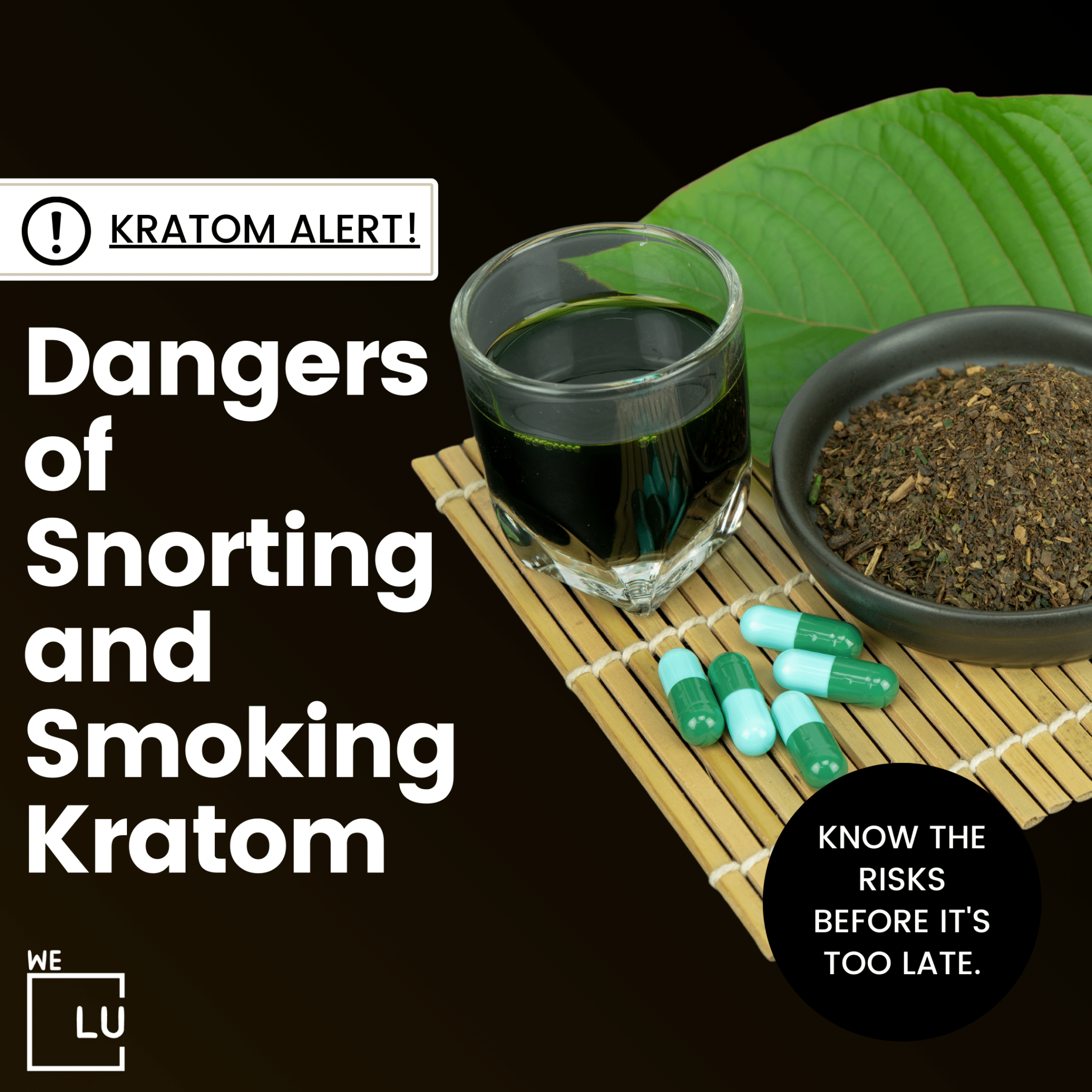In a world of fast-paced lifestyles, pursuing a good night’s sleep often leads individuals to take sleeping pills. While these medications are designed to offer temporary relief from insomnia or other sleep disorders, their usage is not without peril. The dangers associated with sleeping pills extend beyond the immediate relief they provide and into a realm of potential side effects and risks that demand careful consideration.
From dependency and addiction to adverse health outcomes, the seemingly harmless remedy can transform into a crutch. The impact on cognitive function, the risk of overdose, and the development of tolerance are all things someone should weigh before deciding to take sleeping pills. Read on to find out more about the risks of sleeping pills and which sleeping pill is dangerous.
If you or someone you know is grappling with sleeping pill addiction, call We Level Up CA today, where our dedicated team is ready to provide guidance and assistance in overcoming sleeping pill addiction. Reclaim your path to restful sleep and well-being by taking the first step towards a healthier future.
What Are Sleeping Pills?
Sleeping pills are a class of pharmaceutical drugs designed to alleviate insomnia and promote sleep by affecting the central nervous system. These medications typically fall into two categories: sedative-hypnotics and anxiolytics.
Sedative hypnotics, such as benzodiazepines and non-benzodiazepines, work by depressing the central nervous system, leading to a calming effect that induces sleep.
Anxiolytics, commonly prescribed for anxiety but occasionally for sleep, aim to reduce anxiety levels, facilitating relaxation conducive to falling asleep. These medications are often prescribed on a short-term basis to address acute sleep issues, but their prolonged use raises concerns about dependency and potential adverse effects.
While sleeping pills can offer relief for those grappling with sleep disorders, make sure to approach their usage with caution. Many medications risk side effects, including dizziness, daytime drowsiness, and cognitive impairment.
Additionally, the potential for developing a tolerance or dependence on these drugs highlights the need for careful monitoring and medical supervision when incorporating them into one’s sleep regimen. It is advisable for individuals considering or currently using sleeping pills to consult with a healthcare professional to weigh the benefits against the potential risks and explore alternative strategies for managing sleep-related concerns.
The Dangers Of Sleeping Pills
Sleeping pills, also known as sedative-hypnotics or simply hypnotics, are medications that are commonly used to treat insomnia or other sleep disorders. While they can effectively promote sleep, one should be aware of the potential dangers associated with their use. Here are some of the risks and side effects associated with sleeping pills:
- Dependency and Tolerance:
- Regular use of sleeping pills can lead to dependence, where the body becomes accustomed to the medication and requires increasing doses to achieve the same effect.
- Tolerance may develop, meaning that over time, the same dose of the medication becomes less effective, leading individuals to take higher doses.
- Addiction: Some sleeping pills can be habit-forming, especially those classified as benzodiazepines or related drugs. Addiction can lead to a cycle of dependence and withdrawal symptoms when attempting to stop the medication.
- Cognitive Impairment: Sleeping pills can cause drowsiness and cognitive impairment, leading to difficulties with concentration, memory, and coordination. This can be particularly problematic, especially if the medication is taken close to bedtime and there isn’t enough time for the effects to wear off.
- Next-Day Drowsiness: Many sleeping pills have a long duration of action, and individuals may experience residual drowsiness or impaired alertness the next day. This can be dangerous, especially if someone needs to operate machinery or drive a vehicle.
- Risk of Falls and Accidents: The sedative effects of sleeping pills can increase the risk of falls and accidents, especially in older adults. This population may already be at a higher risk of falls, and the use of sleeping pills can exacerbate this risk.
- Negative Interactions: Sleeping pills can interact negatively with other medications, including over-the-counter drugs and herbal supplements. These interactions can amplify side effects or reduce the effectiveness of the medicines.
- Respiratory Issues: Some sleeping pills, particularly those in the benzodiazepine class, can suppress respiratory function. This can be a concern, especially for individuals with respiratory conditions such as sleep apnea.
- Withdrawal Symptoms: Abruptly stopping the use of certain sleeping pills can lead to withdrawal symptoms, including rebound insomnia, anxiety, and restlessness.
Only use sleeping pills under the guidance of a healthcare professional. Individuals with a history of substance abuse, respiratory issues, or certain medical conditions may be at a higher risk of experiencing adverse effects. Non-pharmacological approaches, such as cognitive-behavioral therapy for insomnia (CBT-I), lifestyle modifications, and sleep hygiene practices, are often recommended as first-line treatments for insomnia to minimize the risks associated with sleeping pills.
Which Sleeping Pill Is Dangerous?
Various sleeping pills pose potential dangers, and the level of risk can depend on factors such as individual health, dosage, and duration of use. One category of sleeping pills that has raised concerns is benzodiazepines. Benzodiazepines, including medications like diazepam, lorazepam, and alprazolam, are central nervous system depressants commonly prescribed for anxiety and insomnia.
While effective in inducing sleep, benzodiazepines carry risks of dependence and addiction, especially when used for an extended period. Abrupt discontinuation of these medications can lead to withdrawal symptoms, ranging from rebound insomnia to more severe complications, such as seizures. Additionally, the sedative effects of benzodiazepines can linger into the daytime, impairing cognitive function and motor skills and raising the risk of accidents or injuries.
Non-benzodiazepine hypnotics, such as zolpidem (Ambien) and eszopiclone (Lunesta), are another class of sleeping pills with their own set of concerns. While generally considered safer than benzodiazepines in terms of addiction potential, they still pose risks of side effects like dizziness, confusion, and daytime drowsiness. These medications can also lead to dependency, mainly when used for an extended duration or at higher-than-prescribed dosages.
Who Should Take Sleeping Pills?
Generally, sleeping pills may be considered for those who:
- Have Acute Insomnia: If someone is experiencing a short-term episode of insomnia due to a specific event or circumstance, such as stress, travel, or a significant life change, sleeping pills might be prescribed on a short-term basis to help regulate sleep patterns.
- Need Immediate Relief: In some cases, healthcare providers may prescribe sleeping pills for immediate relief when other non-pharmacological approaches have not been successful. This is often done with caution and for a limited duration.
- Have Chronic Insomnia with Caution: For individuals with chronic insomnia, healthcare providers may consider sleeping pills, but usually as a last resort after other strategies, such as cognitive-behavioral therapy for insomnia (CBT-I), lifestyle changes, and sleep hygiene practices, have been explored.
- Undergo Short-term Stress or Trauma: Sleeping pills might be considered for individuals undergoing short-term stress or trauma that significantly impacts their ability to sleep.

Skip To:
Learn More:
- Primary Insomnia, Specifics, Signs, Symptoms, Diagnosis, Treatment & Therapy Options
- Sleep Anxiety, Symptoms, Risks, Ways to Manage It & Treatments
- Lunesta Detox, Withdrawal, Symptoms, Rebound, Addiction, Timeline & Rehab Treatment
- Dangers of Mixing Ambien and Alcohol, Ambien Specifics, Risks, Side Effects, Overdose Symptoms & Treatment
- Melatonin and Alcohol, Overview, Risks, Complications & Alcoholism Treatment
- Valium Side Effects. How Long Do The Effects Of Valium Last?
- Valium withdrawals, Addiction, Specifics, Physical Dependence, Symptoms & Medication-Assisted Treatment
- How long does valium stay in your system? Metabolites, Factors of Influence, Interactions, Valium Addiction & Treatment
- Mixing Benadryl And Alcohol, Dangers, Misuse, Driving Warnings, Risks In Seniors & Hidden Sources Of Alcohol
- Benadryl Overdose, What is Benadryl? Symptoms Of Overdose, Side Effects & Treatment
- Ativan Addiction, Symptoms, Withdrawal & Treatment
- Ativan Vs Xanax Difference & Similarity. Xanax vs Ativan Which is Stronger? Ativan Vs Xanax Which is Better, Safer & More Effective? Generic Lorazepam Vs Alprazolam Guide.
- Xanax Side Effects, Long-Term Effects, Seizures & Treatment
- Ambien Addiction Treatment, Signs Of Abuse & Effects

Get Your Life Back
Find Hope & Recovery. Get Safe Comfortable Detox, Addiction Rehab & Dual Diagnosis High-Quality Care.
Hotline (855) 695-1160
Are Sleeping Pills Addictive?
Certain sleeping pills, particularly those belonging to the class of medications known as benzodiazepines, can be addictive. Benzodiazepines, which include drugs like diazepam, lorazepam, and alprazolam, are central nervous system depressants commonly prescribed for anxiety and insomnia. While they can be effective in inducing sleep, they carry a risk of physical and psychological dependence.
Long-term use of benzodiazepines can lead to tolerance, meaning that over time, higher doses may be needed to achieve the same soothing effect. Dependence can develop, wherein individuals may experience withdrawal symptoms if they abruptly stop taking the medication. Withdrawal symptoms can range from rebound insomnia and heightened anxiety to more severe symptoms like seizures.
Non-benzodiazepine hypnotics, such as zolpidem (Ambien) and eszopiclone (Lunesta), are another class of sleeping pills. While they are generally considered to have a lower risk of addiction compared to benzodiazepines, they can still lead to dependency, especially when used for an extended period or at higher-than-prescribed dosages.
Get Help. Get Better. Get Your Life Back.
Searching for an Accredited Drug and Alcohol Rehab Centers in Near You?
Even if you have failed previously and relapsed, or are in the middle of a difficult crisis, we stand ready to support you. Our trusted behavioral health specialists will not give up on you. When you feel ready or just want someone to speak to about therapy alternatives to change your life call us. Even if we cannot assist you, we will lead you to wherever you can get support. There is no obligation. Call our hotline today.
FREE Addiction Hotline – Call 24/7Can You Overdose On Sleeping Pills?
It is possible to overdose on sleeping pills, and it can be a serious and life-threatening situation. The risk of overdose increases when individuals take more than the prescribed dosage or combine sleeping pills with other substances, such as alcohol or other medications that depress the central nervous system.
Overdose symptoms can vary depending on the specific type of sleeping pill, but common signs may include:
- Extreme drowsiness or sedation.
- Confusion.
- Unresponsiveness.
- Difficulty breathing or respiratory distress.
- Loss of consciousness.
- Coma.
In severe cases, an overdose of certain types of sleeping pills can lead to respiratory failure and death. Seek immediate medical attention if an overdose is suspected.
If you or someone you know is struggling with the use of sleeping pills or any medication, communicate openly with a healthcare professional. They can provide guidance, adjust medication if necessary, and help develop a comprehensive plan for managing sleep difficulties safely. Additionally, individuals should always take medications exactly as prescribed, avoid combining them with other substances without consulting a healthcare provider, and be aware of the signs of overdose to seek prompt medical attention if needed.

Comfortable Facilities & Amenities
High-Quality Addiction & Mental Health Rehabilitation Treatment
Rehab Centers TourRenowned California Addiction Center. Serene Private Facilities. Inpatient rehab programs vary.
Addiction Helpline (855) 695-1160Proven recovery success experience, backed by a Team w/ History of:
15+
Years of Unified Experience
100s
5-Star Reviews Across Our Centers
10K
Recovery Success Stories Across Our Network
- Low Patient to Therapist Ratio
- Onsite Medical Detox Center
- Comprehensive Dual-Diagnosis Treatment
- Complimentary Family & Alumni Programs
- Coaching, Recovery & Personal Development Events

Dangers Of Mixing Sleeping Pills With Other Substances
Mixing sleeping pills with other substances can significantly amplify the risks associated with both the medication and the additional substances involved. Combining sleeping pills, particularly those that depress the central nervous system, with other substances that have a similar effect can lead to dangerous interactions and potentially life-threatening consequences. Here are some key dangers associated with mixing sleeping pills with other substances:
- Increased Sedation: Both sleeping pills and substances like alcohol or certain illicit drugs have soothing effects on the central nervous system. Combining them can result in excessive sedation, leading to drowsiness, confusion, impaired coordination, and an increased risk of accidents or injuries.
- Respiratory Depression: Many sleeping pills, especially benzodiazepines and some non-benzodiazepine hypnotics, can suppress respiratory function. When combined with other respiratory depressants like opioids or alcohol, there is an increased risk of severe respiratory depression, which can be life-threatening.
- Risk of Overdose: Combining different substances increases the likelihood of exceeding safe dosage limits, leading to overdose. Overdose symptoms can vary but may include extreme drowsiness, confusion, difficulty breathing, and loss of consciousness.
- Worsening Side Effects: Mixing sleeping pills with other substances can intensify side effects such as dizziness, nausea, and impaired cognitive function.
- Increased Dependency and Addiction Risk: Combining substances may contribute to the development of tolerance and dependence on both sleeping pills and additional substances, increasing the risk of addiction.
Inform healthcare providers about all medications, including over-the-counter drugs, supplements, and any substances like alcohol or recreational drugs, to ensure safe and effective treatment. If you have concerns about your sleep medication or are experiencing difficulties, consult a healthcare professional for guidance and adjustments to your treatment plan. Avoid self-medicating or combining substances without proper medical supervision, as it can have serious health consequences.
World-class, Accredited, 5-Star Reviewed, Effective Addiction & Mental Health Programs. Complete Behavioral Health Inpatient Rehab, Detox plus Co-occuring Disorders Therapy.
CALL (855) 695-1160End the Addiction Pain. End the Emotional Rollercoaster. Get Your Life Back. Start Drug, Alcohol & Dual Diagnosis Mental Health Treatment Now. Get Free No-obligation Guidance by Substance Abuse Specialists Who Understand Addiction & Mental Health Recovery & Know How to Help.
Sleeping Pill Addiction Treatment
Treating sleeping pill addiction requires a comprehensive and individualized approach that addresses both the physical dependence on the medication and the underlying causes of the addiction. Abruptly discontinuing sleeping pills can lead to withdrawal symptoms, including rebound insomnia, anxiety, and even seizures, underscoring the importance of professional guidance.
A primary component of treatment involves supervised detoxification in a medical setting. This allows healthcare providers to manage withdrawal symptoms, gradually taper the dosage of the sleeping pills, and monitor the individual’s overall health. In severe cases, additional medications may be administered to alleviate withdrawal symptoms and prevent complications.
Behavioral therapies, such as cognitive-behavioral therapy for insomnia (CBT-I), play a vital role in addressing the psychological aspects of sleeping pill addiction. CBT-I helps individuals identify and modify behaviors and thought patterns contributing to insomnia and addiction, promoting healthier sleep habits.
Support groups and counseling provide a vital network for individuals recovering from sleeping pill addiction. Sharing experiences, challenges, and successes with others facing similar struggles can foster a sense of community and motivation. Additionally, counseling helps individuals explore the root causes of their addiction and develop coping strategies for managing stress, anxiety, or other triggers without resorting to medication.
Inpatient or outpatient rehabilitation programs may be recommended based on the severity of the addiction. These programs offer a structured environment, counseling sessions, and holistic approaches to recovery, encompassing physical, emotional, and mental well-being.
Recovery from sleeping pill addiction is a gradual process that requires commitment, professional guidance, and ongoing support. Seeking assistance from healthcare professionals and addiction specialists, such as those at We Level Up CA, can provide a tailored and effective path toward overcoming sleeping pill addiction and restoring a healthy sleep routine.
Experience Transformative Recovery at the We Level Up California Treatment Center.
See our authentic success stories. Get inspired. Get the help you deserve.



Start a New Life
Begin with a free call to an addiction & behavioral health treatment advisor. Learn more about our dual-diagnosis programs. The We Level Up treatment center network delivers recovery programs that vary by each treatment facility. Call to learn more.
- Personalized Care
- Caring Accountable Staff
- World-class Amenities
- Licensed & Accredited
- Renowned w/ 100s 5-Star Reviews
We’ll Call You
Prescription Drug Abuse & Prescription Medication Addiction Recovery & Sobriety Story
Search We Level Up CA Which Sleeping Pill Is Dangerous, Drug & Alcohol Rehab / Detox & Mental Health Topics & Resources
Sources
- Lie JD, Tu KN, Shen DD, Wong BM. Pharmacological Treatment of Insomnia. P T. 2015 Nov;40(11):759-71. PMID: 26609210; PMCID: PMC4634348. https://www.ncbi.nlm.nih.gov/pmc/articles/PMC4634348/ Read More: which sleeping pill is dangerous, can you overdose on sleeping pills, sleeping pill overdose, sleeping pills overdose, overdose on sleeping pills, dangerous sleeping pills, overdose sleeping pills, overdosing sleeping pills, can you overdose from sleeping pills, how many sleeping pills does it take to overdose, overdosing on sleeping pills, what happens if you overdose on sleeping pills,
- Medline Plus – Medicines For Sleep – https://medlineplus.gov/ency/patientinstructions/000758.html Read More: which sleeping pill is dangerous, can you overdose on sleeping pills, sleeping pill overdose, sleeping pills overdose, overdose on sleeping pills, dangerous sleeping pills, overdose sleeping pills, overdosing sleeping pills, can you overdose from sleeping pills, how many sleeping pills does it take to overdose, overdosing on sleeping pills, what happens if you overdose on sleeping pills,
- InformedHealth.org [Internet]. Cologne, Germany: Institute for Quality and Efficiency in Health Care (IQWiG); 2006-. Using medication: What can help when trying to stop taking sleeping pills and sedatives? 2010 Apr 20 [Updated 2017 Aug 10]. Available from: https://www.ncbi.nlm.nih.gov/books/NBK361010/
- Huang WF, Lai IC. Patterns of sleep-related medications prescribed to elderly outpatients with insomnia in Taiwan. Drugs Aging. 2005;22(11):957-65. doi: 10.2165/00002512-200522110-00005. PMID: 16323972. https://pubmed.ncbi.nlm.nih.gov/16323972/
- Eglovitch M, Parlier-Ahmad AB, Legge C, Chithranjan S, Kolli S, Violante S, Dzierzewski JM, Huhn AS, Wilkerson A, Martin CE. Patient reported preferences for sleep interventions among women receiving buprenorphine for opioid use disorder. Front Psychiatry. 2023 Sep 14;14:1244156. doi: 10.3389/fpsyt.2023.1244156. PMID: 37779614; PMCID: PMC10537926. https://pubmed.ncbi.nlm.nih.gov/37779614/
- Chen L, Bell JS, Visvanathan R, Hilmer SN, Emery T, Robson L, Hughes JM, Tan EC. The association between benzodiazepine use and sleep quality in residential aged care facilities: a cross-sectional study. BMC Geriatr. 2016 Nov 26;16(1):196. doi: 10.1186/s12877-016-0363-6. PMID: 27888835; PMCID: PMC5124287. https://www.ncbi.nlm.nih.gov/pmc/articles/PMC5124287/
- Savage RA, Zafar N, Yohannan S, et al. Melatonin. [Updated 2022 Aug 8]. In: StatPearls [Internet]. Treasure Island (FL): StatPearls Publishing; 2023 Jan-. Available from: https://www.ncbi.nlm.nih.gov/books/NBK534823/
- Edinoff AN, Wu N, Ghaffar YT, Prejean R, Gremillion R, Cogburn M, Chami AA, Kaye AM, Kaye AD. Zolpidem: Efficacy and Side Effects for Insomnia. Health Psychol Res. 2021 Jun 18;9(1):24927. doi: 10.52965/001c.24927. PMID: 34746488; PMCID: PMC8567759. https://pubmed.ncbi.nlm.nih.gov/34746488/
- Wilson S, Argyropoulos S. Antidepressants and sleep: a qualitative review of the literature. Drugs. 2005;65(7):927-47. doi: 10.2165/00003495-200565070-00003. PMID: 15892588. https://pubmed.ncbi.nlm.nih.gov/15892588/
- Wichniak A, Wierzbicka A, Walęcka M, Jernajczyk W. Effects of Antidepressants on Sleep. Curr Psychiatry Rep. 2017 Aug 9;19(9):63. doi: 10.1007/s11920-017-0816-4. PMID: 28791566; PMCID: PMC5548844. https://www.ncbi.nlm.nih.gov/pmc/articles/PMC5548844/
- Bent S, Padula A, Moore D, Patterson M, Mehling W. Valerian for sleep: a systematic review and meta-analysis. Am J Med. 2006 Dec;119(12):1005-12. doi: 10.1016/j.amjmed.2006.02.026. PMID: 17145239; PMCID: PMC4394901. https://www.ncbi.nlm.nih.gov/pmc/articles/PMC4394901/




